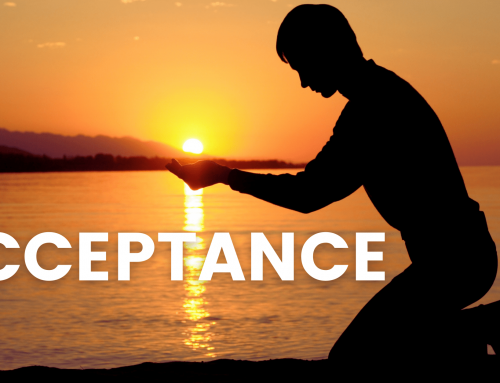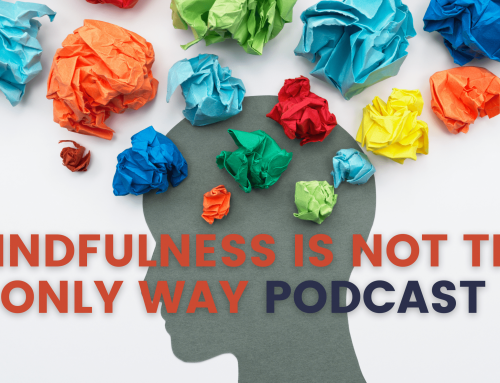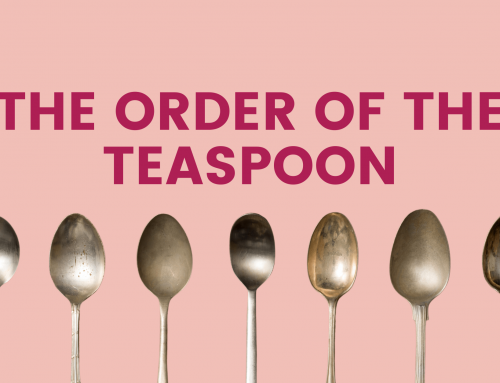I hosted a global marketing conference on Friday which was great, although the planning and organising took up a lot of my personal energy and I’m paying the price at the moment!
In total, we had 170 people at the event which took place at Google’s London HQs, so an interesting and inspiring venue to hear some very interesting and inspiring speakers talk on everything from creativity and innovation to data and process.
One speaker, Tom Nixon, spoke about how ‘innovation starts with you’. In other words, you can change yourself by looking at your habits and gradually making small changes that eventually change how you think; feel and behave. The idea really resonated with the audience, many of whom were young, creative people, keen to make a big difference in the world.
So over the last few days, I have been thinking about the habits that I have changed over the years and the impact that ‘personal innovation’ has had on my total life. Then this morning, I stumbled across Nick Crocker’s list of 30 things that he’s learned, or habits that he has applied. I read the list with real interest as I related to so many of them and wanted to share with you:
- Remember you will die. Maybe even today. Don’t forget that. Don’t forget to be thankful for your health. For the ability to walk. For the time you get to spend with the person you love. For your siblings. For whatever it is that you have today. It’s not yours, it can be stolen away at any moment. So while you have it on loan, cherish it.
- Exercise, almost every day. Maybe this is just me. But if I’m not active, I can’t trust myself. I can’t trust my emotions, my reactions, my thinking. Regular exercise resets me.
- To know what you think, write it down. Forcing myself to write something down, to structure it, to let it see light is the best way for me to clarify what I actually think about something.
- You end up being the average of the people you spend your life with. You become a reflection of your environment, particuarly your social one. Choose your people wisely. Don’t hesitate to move or change if you know things aren’t right.
- Most people never ask for what they want. A lot of good happens if you ask for what you want. First of all, you’ll be forced to define what you want. Second, you’ll be forced to think about how you might get it. The third step, is the easiest and the least utilised. Just ask.
- Always take the stairs. There’ll be plenty of days where you can’t, so accept the opportunity to take the stairs as a gift and make a deposit into your Future Health account.
- Put yourself in places that make you nervous. Nerves are really the only way to know that you’re being stretched. If there hasn’t been a moment of nerves in your life for a month, it might be worthwhile asking if you’re pushing hard enough.
- Talk it out. When it comes to humans, there’s no other way. You have to talk things out. Sometimes it will take years. For the right people, that time is worthwhile. The unsaid will go unsolved.
- Don’t be precious. It’s OK to be passionate about great wine, or great coffee or great beer but don’t be the person who’s above a glass of cask wine, a cup of instant coffee or a XXXX Gold.
- The greatest reflection of your priorities is your time. Whatever you say about what matters to you, the true test is where you place your time. So if you say your priorities are your partner or your kids or your family or your health, that statement will only be true if your calendar reflects it.
- Everything is mediocre. Most jobs are mediocre. Most people’s work is mediocre. Most products and experiences are mediocre. Most lives drift to mediocre. When you rise above the mediocrity, people will notice.
- It’s really, really hard to make something great. The inertia of mediocrity makes it hard to do great work. Most people want most things to stay mostly the same. To do great things, you have to go unrecognized, be under-appreciated and push to unreasonable lengths. That’s why #11 stays true.
- Don’t get disheartened. If you get disheartened, it’s over. Don’t ever underestimate the value of enthusiasm. Sometimes it’ll be all you have.
- Perception is reality. What’s ‘true’ often doesn’t matter because of what’s ‘perceived’.
- Understand the value of time. Life ends up being really short, no matter how long you live. You can recover money, you can rebuild houses, you can re-buy glassware — but you can’t get back time.
- Self-control is a finite resource. You can only ask so much of yourself each day. You’ll snap or warp or splinter if you ask too much. You have a limited capacity to direct yourself a certain way. It’s worth considering where that directive capacity goes every day.
- Run, wherever you are. Running is the best way to reset, to overcome jetlag, to see a new place and to feel good about the world.
- Listen to your body. You might feel like you’ve found a loophole, but if you’re not honest, your body will catch up with you soon enough.
- Control your inputs. Not just what you eat and drink (though this will have a profound impact), control what you read, what you watch, what you listen to, what notifications you allow on your phone, where you spend your time, who you spend it with. Guard your gates with care.
- Everyone has a vice. To err is human. Everyone has a fault-line. Don’t spend too much time searching for it, but know it will be there and don’t be disappointed when you find it.
- Listen. On average, are you doing more listening or talking? If the balance isn’t wildly in the favour of listening, or if you had to think about that question for second, it’s a sign you’re not listening enough.
- Be genuinely curious. You can’t artificially generate curiosity, so you have to follow where yours actually leads. Curiosity ends up being the driving force behind the most interesting people.
- Of all the life-hacks, not drinking is the most impactful one. When compared with optimising your email inbox or taking multivitamins or outsourcing tasks to a VA, there’s really no bigger lifehack than just not drinking. Asking for soda-lime in social-drinking situations is the easiest way to overcome the friction of applying this to your life.
- Pay close attention to what you do when you’re alone. When no-one’s looking, when the house is empty, when the afternoon is yours alone — what you choose to do says a lot about you. Pay close attention to where your mind wanders in the shower. Your natural wanderings are your compass to what’s truly interesting to you.
- Get outside. You’re a collection of atoms, in a poorly understood universe that’s probably infinite. Go look at a tree, or think about a cloud or a star. Whatever you’re going through is probably pretty insignificant in the context of all of that.
- Never talk about how busy you are or how drunk you were. Seriously. Stop it. Enough already.
- Almost everything normalises. Grief, wealth, love. Eventually it will all feel normal. Don’t let the feeling of ‘normal’ hide the value of what’s in front of you.
- People care 10% as much as you think they do. So long as you’re making an effort to be a good person, you can assume most people care much less than you think they do. Just chalk up any negative interactions to circumstance. People always have a million things going on and you’re generally one of the least important.
- Ship something. Don’t forget the value of making something, even the small stuff. A letter, a vegetable garden, a great recipe. No matter how insignificant. Making something helps remove the rust.
- You never know where you are on history’s big wheel. You never know what’s coming for you. You have to have some faith. Your moment is coming.
Did you like this list? What have you learnt in your life? Let me know by writing a comment below.







